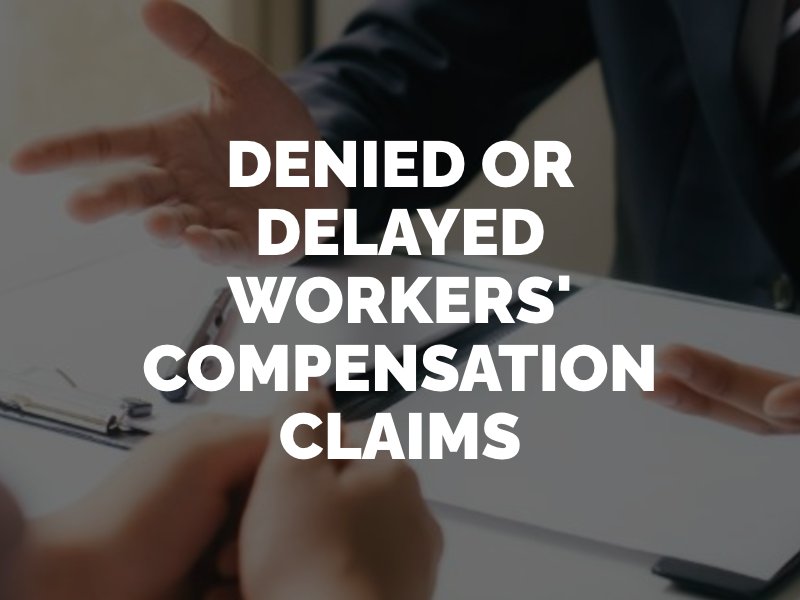Common Tactics to Delay and Deny Workers’ Compensation Claims
In California, the workers’ compensation system permits employees to receive insurance benefits for occupational injuries and illnesses without having to prove fault. Despite the system being in place to protect workers, insurance companies often try to take advantage of claimants by wrongfully delaying and denying claims. If this happens to you, it is important to seek help from an experienced Los Angeles workers’ compensation attorney.

Requesting Excessive Information
While an insurance company has the right to request evidence and documentation from you to support your workers’ compensation claim, requiring an excessive amount of evidence is a common delay tactic. Persistently claiming that there is insufficient evidence – even after you provide adequate documentation – is a sign of this delay strategy.
Unnecessarily Extending the Investigative Period
In California, the law requires insurance companies to acknowledge the receipt of a claim within 15 days and accept or deny the claim within 40 days. Only with due cause can an insurance company request an extension of this investigative period. A common delay tactic is to extend the insurance company’s investigation without cause.
This delay tactic is often used in the hopes that by making the claimant wait, the worker will be more likely to accept the first (often low) settlement out of a desire to resolve the claim and get paid. If the insurance company cannot give a valid or reasonable explanation as to why the investigation must be prolonged, this is a sign of insurance bad faith.
Arguing That the Injuries Were Pre-Existing
A common reason for a workers’ compensation claim denial is alleging that the worker’s injuries were pre-existing or were not caused within the course and scope of employment. These denials may require the claimant to prove that the injuries were work-related, such as with medical records and expert testimony.
You can reduce your risk of a claim getting denied for this reason by refusing to sign any medical authorization release forms sent to you by the insurance company. These forms are misleading and typically give the insurer access to your full medical history, rather than only the documents relevant to the claim. This can allow the insurer to use pre-existing injuries or medical conditions against you.
Insurance Bad Faith
Insurance companies have a legal responsibility to process claims in an honest and good-faith attempt to resolve them according to all applicable insurance laws. Unfortunately, insurance companies do not always operate by this standard.
In an attempt to turn a profit, workers’ compensation insurance carriers may engage in bad-faith practices, such as:
- Wrongful denial (without reason) of a valid claim
- Deliberate delays
- Failing to properly investigate the claim
- Misrepresenting the terms of the policy
- Ignoring medical evidence and documentation
- Using intimidation or coercion tactics
- Refusing to offer a reasonable workers’ comp settlement
Steps that an insurance company may take to engage in bad faith include calling to ask for a recorded statement, requesting full release of your medical records, disputing the types of medical care you received and offering a fast settlement that is less than your claim is worth.
How an Attorney Can Help With a Delayed or Denied Workers’ Comp Claim
If you were injured at work, it can benefit you to hire a work injury lawyer in Los Angeles to help you negotiate with an insurance company and collect a workers’ compensation settlement that is fair for the extent of your injuries and losses. Your lawyer can point you to the best medical care in your area and speak to insurance agents on your behalf.
If your attorney suspects insurance bad faith, a lawsuit can be filed against your employer’s insurance carrier in pursuit of additional damages for this tort on top of a settlement for your workers’ compensation claim. You can trust an attorney to explore all outlets for financial compensation on your behalf while you concentrate on healing. Contact Rose, Klein & Marias LLP today for a free consultation.
